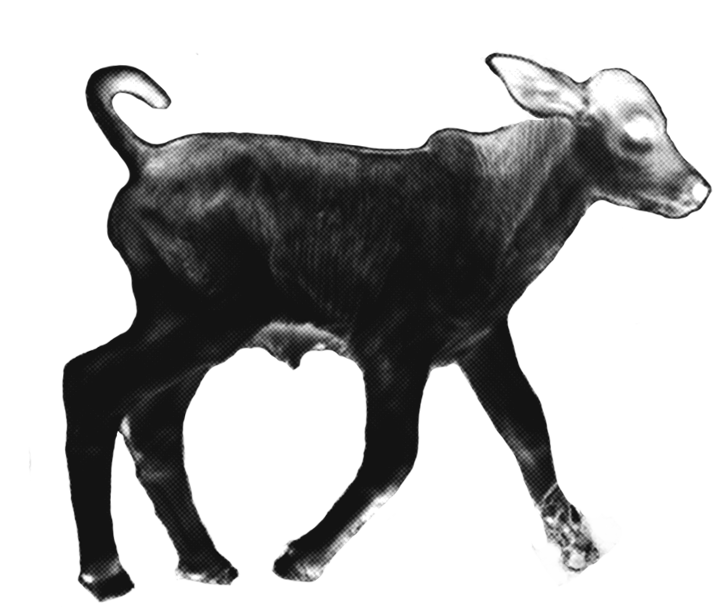Fotografía por Gregorio Díaz
Ante la insistencia humana en creer en las naciones y las fronteras, los conflictos derivados de asumir que podemos poseer la tierra no se detienen. Esta idea se ha usado para dividir territorios, para ocupar otros, para fragmentar cuerpos, para instalar muros, para separarnos entre naturaleza y cultura. De este modo, se ha legitimado un paisaje de acaparamiento y de despojo. Nos acostumbramos a distanciarnos del contacto ínfimo con el suelo, con la tierra, con la máxima escultora planetaria, la que permite la siembra y el entierro.
La obra Motín de mugidos mudos es un poema dedicado a ella. Ascender el suelo para entregárselo al viento, para que en su caída se recuerde. Entonces, es también un poema dedicado a nuestra especie —un recordatorio—. Ella es la verdadera bandera y la verdadera mortaja.
Recolecté tierra y boñiga del único hato bovino que hay en el casco urbano de Bogotá, el hato bovino de la Universidad Nacional de Colombia, un territorio donde he compartido con las vacas durante ocho años. Las materias son convertidas en partículas más pequeñas, intentando llegar a su estado más primordial, donde su peso les permita compactarse entre sí, pero también elevarse para ser dispersadas.
En este motín, la tierra y la boñiga se convierten en polen y viajan silenciosamente, invocando las fuerzas que hacen posible que sigan abriéndose las flores, pero también los montes.
No estamos en la tierra, somos la tierra.
In the face of humanity’s persistent belief in nations and borders, the conflicts born from the assumption that we can possess the earth do not cease. This idea has been used to divide territories, to occupy others, to fragment bodies, to erect walls, to separate nature from culture. In doing so, it has legitimized a landscape of dispossession and land grabbing. We’ve grown accustomed to distancing ourselves from the most intimate contact with the earth — that planetary sculptor which makes both sowing and burial possible.
This work is a poem dedicated to her. To lift the soil and offer it to the wind, so that in its fall, she may remember herself. It is, then, also a poem dedicated to the human species. She is the true flag and the true shroud.
I collected earth and cow dung from the only cattle herd located within Bogotá’s urban center and transformed these materials into smaller particles, seeking their primordial state — where their weight allows them to compact together, but also rise and scatter.
In this mutiny, the earth and the cow dung become pollen and travel silently, invoking the forces that allow flowers — and mountains — to keep blooming.
We are not on the earth; we are the earth.
a


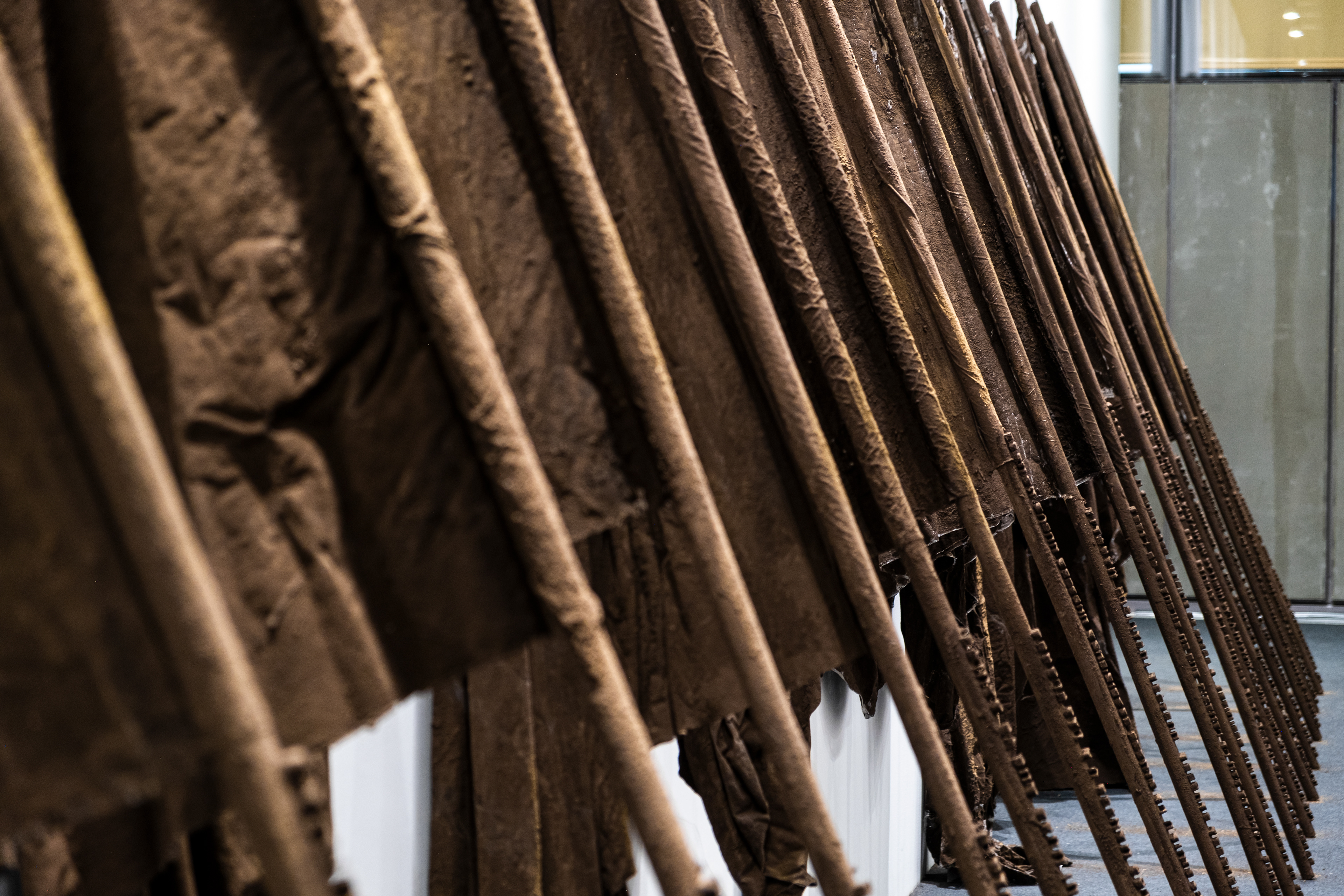
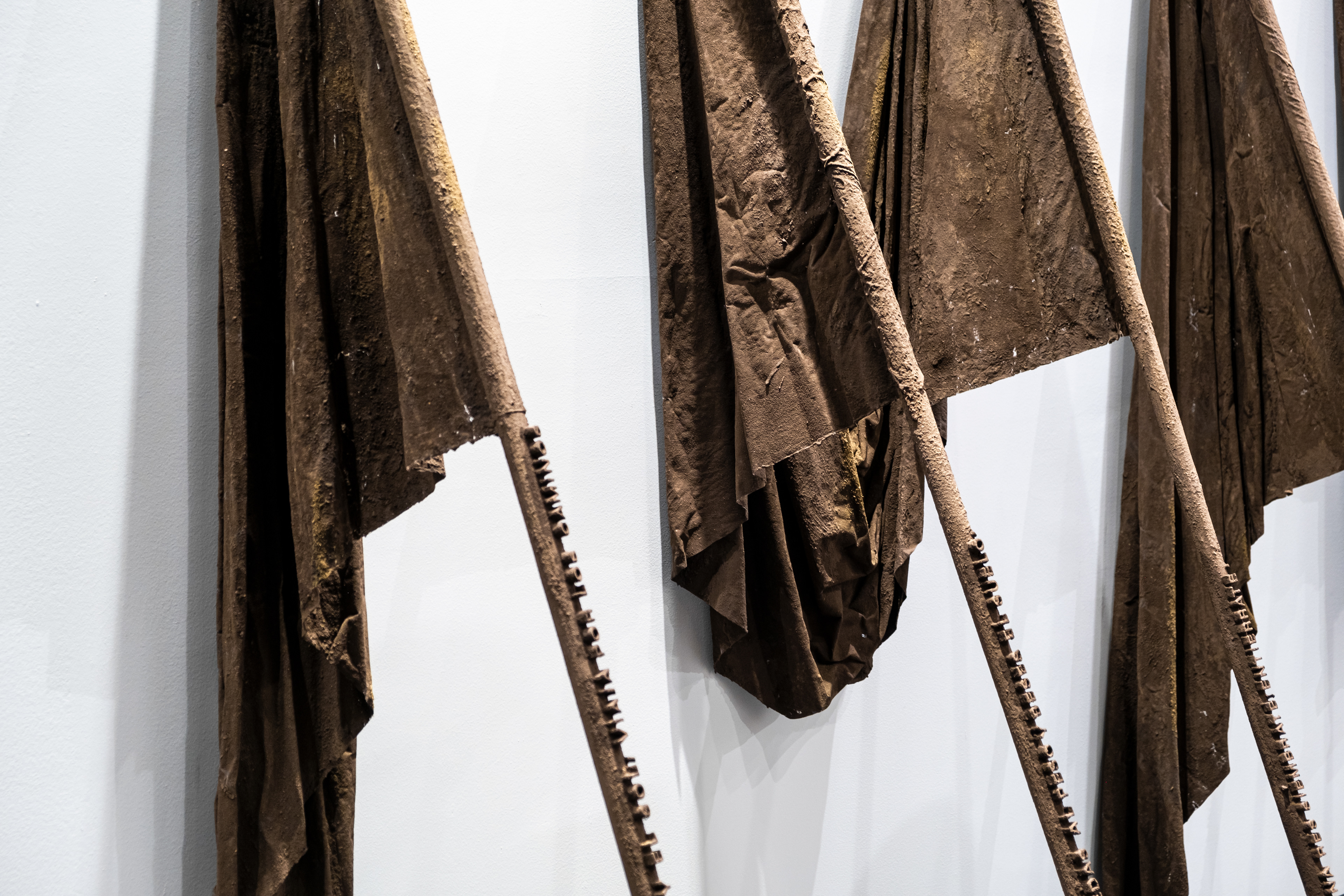
Fotografías por Gregorio Díaz
No estamos en la tierra, somos la tierra.
Yo, la tierra, fui partida en parcelas, nombrada con nombres que no reconozco. Me dijeron propiedad, me dijeron nación, me dijeron frontera. Yo no entiendo de eso. Yo entiendo de raíces, de humedad, de cuerpos que se entierran y se pudren y me alimentan. Yo soy la que sostiene, la que traga, la que recuerda.
Yo, la boñiga, fui despreciada. Me recolectaron del único hato bovino que hay en el casco urbano de Bogotá, el hato bovino de la Universidad Nacional de Colombia. Yo sé que soy fermento, que soy calor, que soy ciclo. Yo sé que las vacas me dejan como ofrenda, como firma, como mapa.
Nosotras, las vacas, lo sabemos. Lo rumiamos lento en el único hato bovino que hay en el casco urbano de Bogotá. Sabemos que la boñiga es una palabra antigua. Se olvidó cómo se escucha el suelo.
Yo, el viento, me llevo lo que ellas sueltan. Me llevo el polvo, la partícula. No tengo forma, pero tengo fuerza. Yo esparzo. Yo disperso. Yo devuelvo.
Yo, el polvo, fui montaña. Fui hueso. Ahora soy casi nada, pero viajo. Me cuelo en los poros, en las grietas, en los pulmones. Me deslizo entre los dedos de quien intenta contenerme. No se puede contener lo que recuerda. En este mundo, no estamos en la tierra. Somos la tierra. Y hemos empezado a hablar.
- Carolina Cerón
Ahora que, por un instante,
eres el viento y el sol,
viaja por los caminos que no han sido pisados.
Y cuando cedas al peso,
y beses el suelo,
como lo hace la pezuña de una res,
siémbrate.
Entiérrate.
Celebraremos contigo
que no perteneces a nadie.
Recuerda:
no hay línea que te divida,
ni muro que te oculte.
Recúerdanos
como recuerdas a los montes,
como recuerdas a las flores.
Desbordaremos contigo
los ríos,
la savia,
la sangre,
escribiendo nuestro nuevo nombre.
Serás nuestra verdadera bandera,
nuestra infalible mortaja.
Haremos dignas alianzas
con la lombriz que en silencio te labra,
porque no nacimos para vivir oprimidos,
a pesar de quienes te fragmentan,
a pesar de quienes te acaparan.
Desde Sogamoso hasta Gaza,
permite las olivas,
las sandías,
las papas,
las manos de mi madre que te amasan,
las huellas de mi taita que aún avanzan.
Nuestrxs hijxs no olvidarán
compartir con sus hermanxs el fruto.
En cada pulso cantarán los muertos,
y semillas germinarán del luto.
Desde el páramo al piedemonte
te abrazarán arroyos de sudor y fuego.
Entre tus grietas seguirán posibles
la sagrada siembra
y el justo entierro.
Así remembraremos
que somos parte de tu cuerpo:
Tierra en movimiento.
"Now that for an instant
you are the wind and the sun,
travel through paths that have not been walked
travel through paths that have not been walked
And when you yield to the weight
and kiss the ground,
as the hoof of cattle does,
as the hoof of cattle does,
sow yourself,
bury yourself.
We will celebrate with you
that you belong to no one.
Remember there is no line that divides you,
no wall that hides you.
Remember us
as you remember the mountains and the flowers.
We will overflow the rivers, the sap, and the blood,
writing our new name."...

Fotografía por Gregorio Díaz

Fotografía por Gregorio Díaz
a
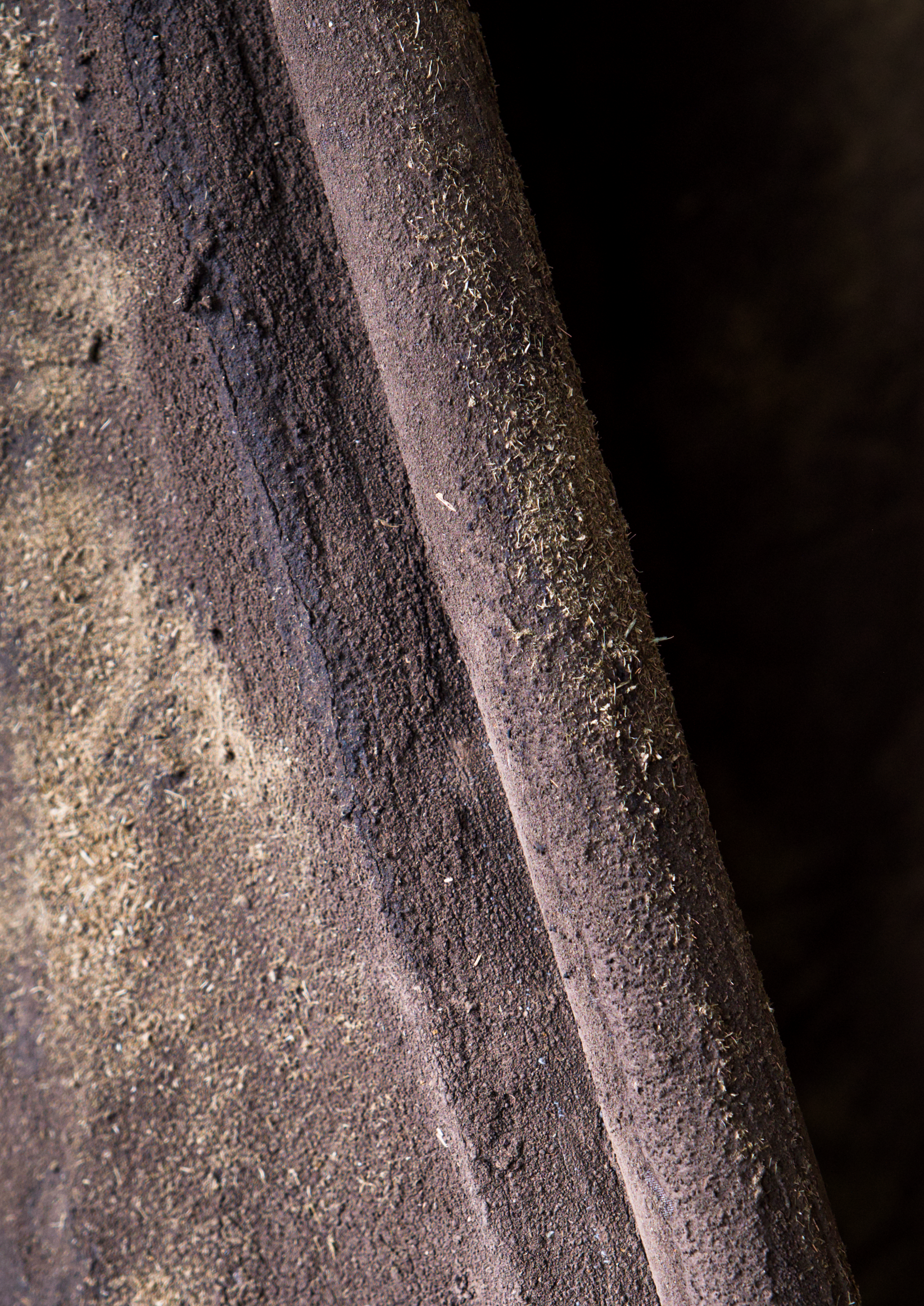
Cortesía del Artista
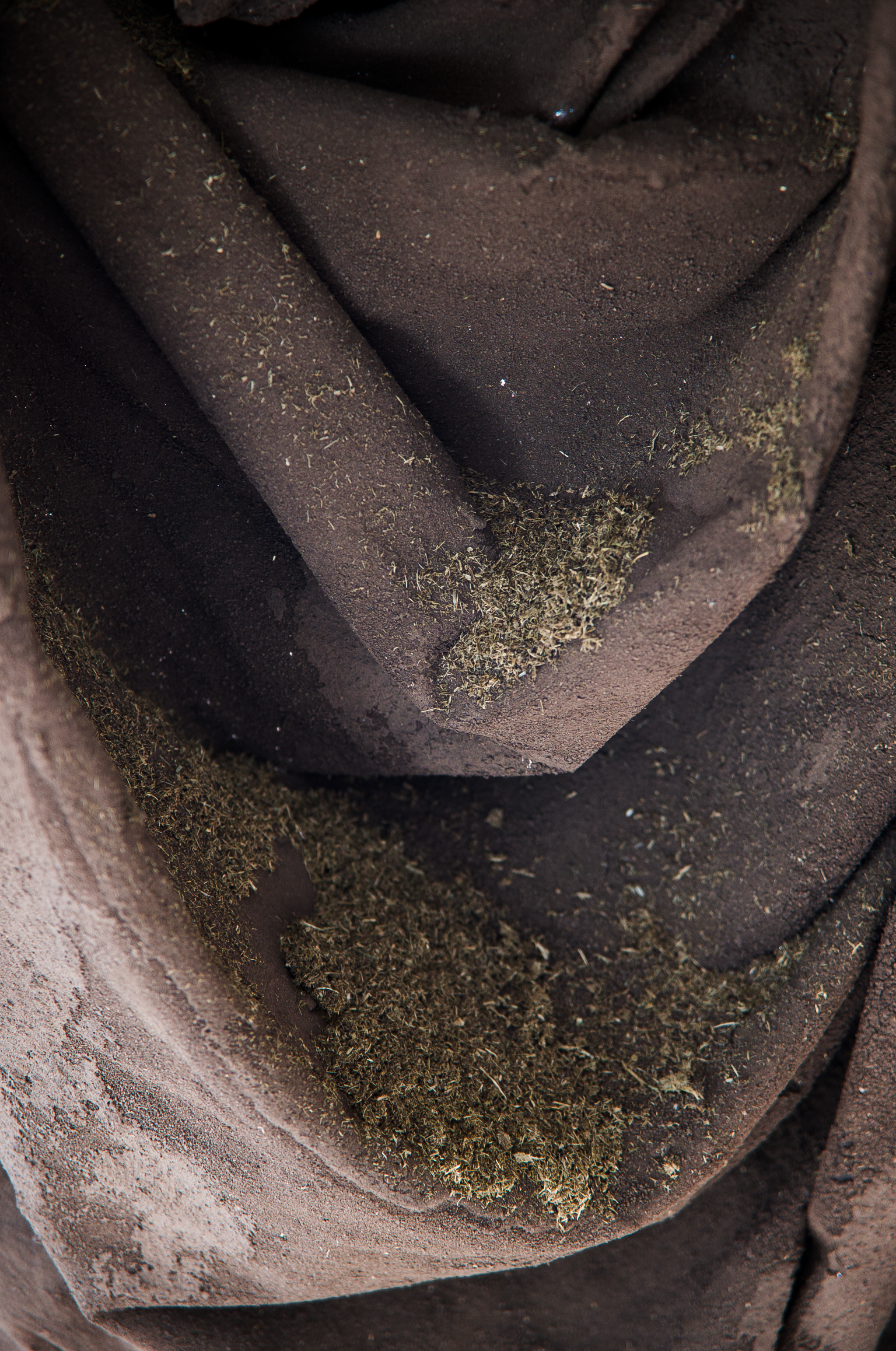
Cortesía del Artista
Fotografía por Gregorio Díaz
Versión corta para la exposición Minuta del artista Alejandro Salcedo
en el marco del XII Premio Luis Caballero
Fotografías cortesía del artista
